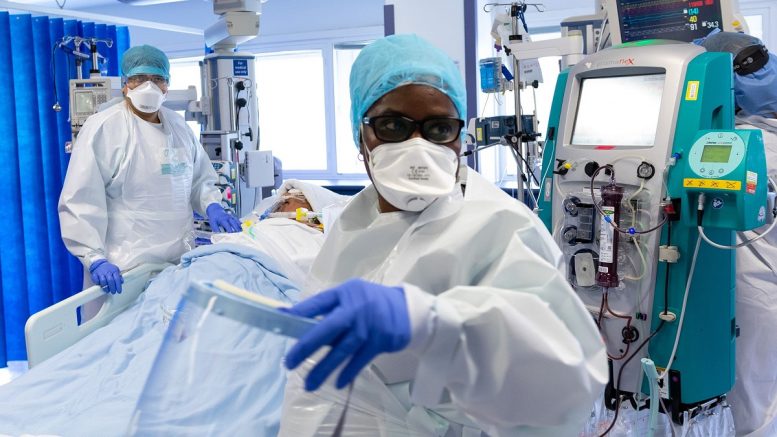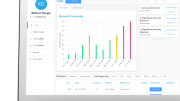As we embark on a new year, the challenges of 2020 are still rife for the NHS across the UK. Hospitals in England are currently treating more Covid-19 patients than at the peak of the first wave in April. The country has just entered its third national lockdown and non-essential services are being postponed again in order to manage the growing numbers of patients.
While the rollout of vaccines has brought hope, the reality is we’re a long way from safeguarding everyone against the spread of the coronavirus – and demand for NHS services and the stress on workers is only rising.
Recent research, commissioned by Nuance and quizzing over 900 NHS healthcare professionals from primary and secondary care, found the pandemic is taking its toll on staff. In fact, three in four (75%) NHS primary care workers feel that their stress and anxiety levels at work have increased since the onset of Covid-19, with 60% of secondary care workers stating the same.
Addressing employee burnout
Workloads are increasing, with pressure to see, treat and discharge patients quickly on the rise. Numerous studies – including the one undertaken by Nuance and cited above – suggest that the pandemic has simply accelerated the trajectory towards burnout that many clinicians were already on before the virus hit.
Clinician burnout is a global phenomenon and a growing problem in the UK, with an ever-increasing number of doctors quitting practicing medicine because of it. In primary care, around seven in 10 respondents say that the pandemic has made their work/life balance worse, along with 60 per cent in secondary care.
The most significant change to working practices around patients for many healthcare professionals was the move to digital-first appointments. An RCGP analysis of GP appointments data demonstrated that before the pandemic upwards of 70 per cent of consultations were face to face. This quickly shifted in a matter of weeks to 23 per cent. The rapid move to a digital-first approach appears to be a major contributory factor to administrative workload, and to stress and anxiety, for several reasons.
Remote consultations driving up administration
On the topic of workload, Nuance’s research reveals that 67 per cent of primary care respondents stated the pandemic has increased the amount of clinical administration at their practice. Additional comments provided during the survey indicate there are several causational factors, but this pivot to remote consultations appears to be a major contributor. 99.5 per cent of respondents’ practices provide remote consultations, and 78 per cent of respondents believe remote consultations have caused an increase in general workload.
It has been noted that remote consultations come with higher risk and more diagnostic uncertainty, and therefore require more safeguarding processes. This all results in increased requirements from an administration perspective. This is especially prevalent within primary care, where two-thirds (67 per cent) of respondents reported an increase in administration as a result of Covid-19.
Prior to the pandemic, clinicians had already been reported to spend on average of 11 hours a week on clinical documentation, and once you consider lost and repeated documentation, that number could bump up to 50% of their time spent on administrative processes.
Relieving stress as we move through 2021
There is a role for technology in helping ease the administrative burden that should be explored but, given the current environment and persisting stress factors, perhaps the immediate focus should be on considering, or reconsidering, what we ask of clinicians and NHS workers. Public bodies should determine why the administrative burden has continued to rise and, in the context of rising stress and burnout, reassess the importance of bureaucratic tasks and where it is essential for information to be recorded.
Building resilience within the workforce, increasing access to mental health support, and reducing the emphasis on targets will allow clinicians to focus on where they deliver the most value: caring for their patients.
The administration clinicians were tasked with before the pandemic, combined with the increased levels of administration as a result of Covid-19, is evidently placing an unsustainable strain on the wellbeing of the NHS workforce. If nothing changes, we are likely to see many staff, particularly in primary care, suffering from burnout, which can have serious repercussions for the entire population.
The growing rate of transmissions – added to the usual winter pressures and cancellation of hospital services during the third national lockdown – are already placing further strain on overstretched staff. Additionally, with GPs set to be called upon to administer Covid-19 vaccinations to the public, doctors and professional bodies have expressed concern about how surgeries will cope with the increased responsibility and workload. More support is required, from identifying and tackling the source of such mental health strain to deploying the right technology to ease such pressures moving forwards.
Article by Dr Simon Wallace, Chief Clinical Information Officer, Nuance





